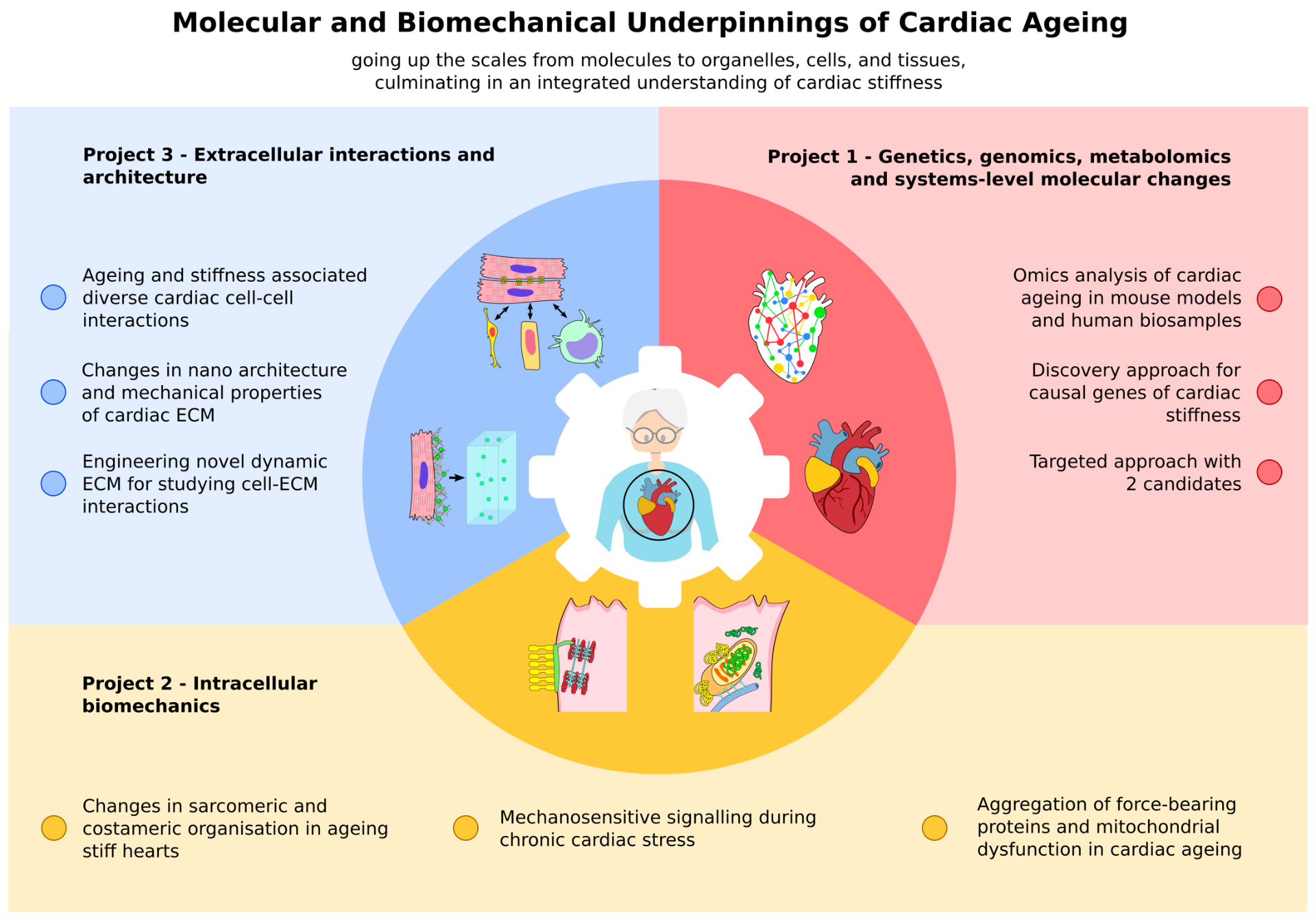M2CardAGE
Molecular and Biomechanical Underpinnings of Cardiac Ageing
Researchers from the M2CardAGE Programme
Home › Flagship Projects › M2CardAGE
Team
Collaborating Institutions
Mechanobiology Institute (NUS)
Project
The overarching goal of this project is to gain a mechanistic understanding of how the molecular and mechanical functions of heart cells and tissue change during ageing. Knowledge gained aims to springboard innovative diagnostic methods and treatments for age-related cardiovascular disease (CVD) of direct applicability to the Singaporean population. Singapore is among the top nations with rapidly ageing populations. CVD is a significant barrier to healthy ageing, accounting for ~30% of chronic conditions in the old, and contributing substantially to the healthcare burden of chronic diseases in the Singaporean elderly. The heart is therefore a key focus if Singapore is to achieve healthy longevity. Here, we propose to tackle an overarching hallmark of ageing hearts: cardiac stiffness. As the heart ages, it undergoes major structural biomechanical changes inside the cell and in the tissue around cells. We hypothesize that long-term stress leads to significant molecular and mechanobiological changes, which in turn results in cardiac stiffness, contributing to ageing diseases such as heart failure.
Our project is built on 3 converging and interactive themes, based on increasing scales, from molecules to cells and tissue, culminating in an integrated framework explaining age-associated cardiac stiffness:
(1) Molecular characterization of cardiac ageing
(2) Intracellular mechanics in cardiomyocyte ageing, and
(3) Extracellular interactions and architecture in ageing hearts.
This ambitious and highly interdisciplinary research brings together basic biomedical and clinical research units at the NUS Faculty of Science, Faculty of Engineering, and YLL School of Medicine, and the CVMD programme at Duke-NUS. Collectively, our fully integrated effort will lead to a new paradigm of cardiac ageing research in Singapore, with a unique conceptual framework for age-associated cardiac diseases.


